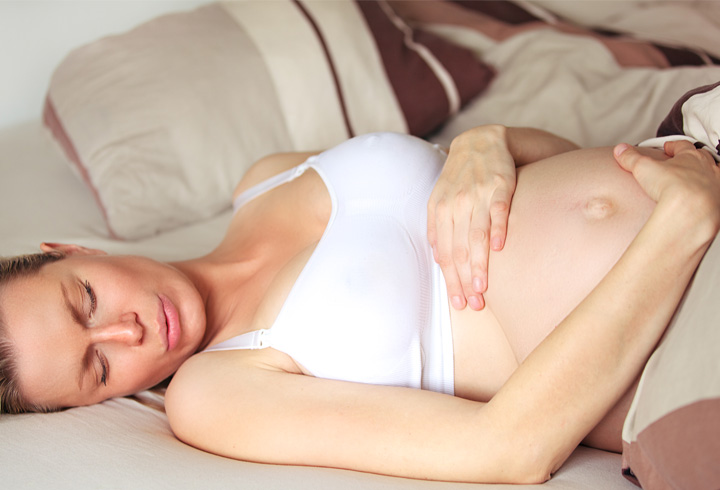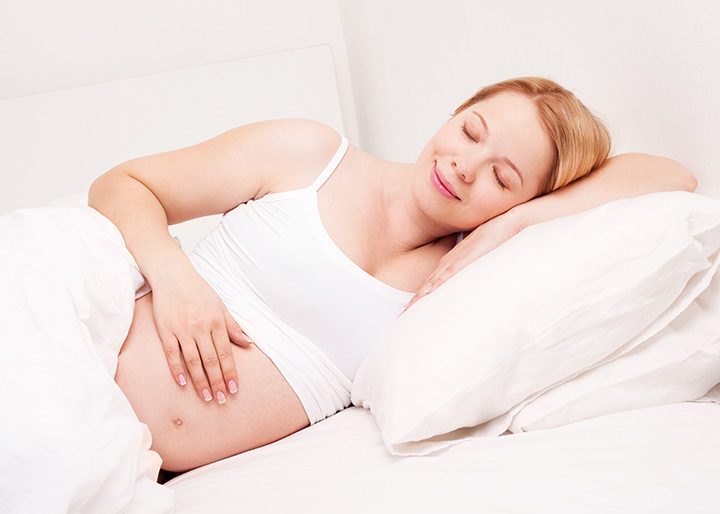
How many hours do you sleep? Do you think you are sleeping enough? If you think that sleep deprivation won’t be an issue, then you are wrong. Depending on how pregnant you are, everything from “morning” sickness to scary dreams to the restless leg can take their toll on your nightly shut-eye. During pregnancy, you may see yourself wrestling in bed trying to get comfy before falling asleep. Sadly, your usual sleeping positions may no longer work for you during pregnancy. There are some reasons for this new discomfort, but there are some sleeping positions that you can try that may help you get your much-needed rest.
During your first trimester, the sleep-inducing hormone progesterone begins surging through your body. All the added fluid in your body may send you rushing to the bathroom countless times each night, and it can be very difficult to get comfortable.
During your second trimester, a good night’s sleep is likely to return, and with it, a welcome energy boost. Enjoy it, because during your third trimester, the quality of your sleep may reach an all-time low.

Kathryn A Lee, RN, PhD, a professor of nursing at the University of California, San Francisco, says that most women don’t know what’s in store for them during pregnancy. When you are pregnant, your body goes through several changes. These changes tend to disturb your usual peaceful sleep. Reasons for your discomfort may involve increased size of the abdomen due to increasing size of the foetus, back pain, heartburn, and shortness of breath, dreams, stress and insomnia.
Almost all pregnant women have trouble sleeping at some point. And it’s not surprising, considering that when you’re pregnant, nausea, heartburn, increased heart rate and a constant need to pee often come with the territory. Other symptoms that may interfere with your sleep are:

The best sleep position while pregnancy is “SOS” (sleep on side). The best is to sleep on your left side. Sleeping on your left side will raise the amount of blood and nutrients that reach the placenta and your little one.
Place your legs and knees bent, and keep a pillow between your legs.
You can use the SOS position if you find that you are having issues with back pain. You can also try keeping a pillow under your abdomen as well.
If you are feeling heartburn during the night, you may need to try propping your upper body with pillows
It is the most powerful creation to have life growing inside of you.There is no bigger gift